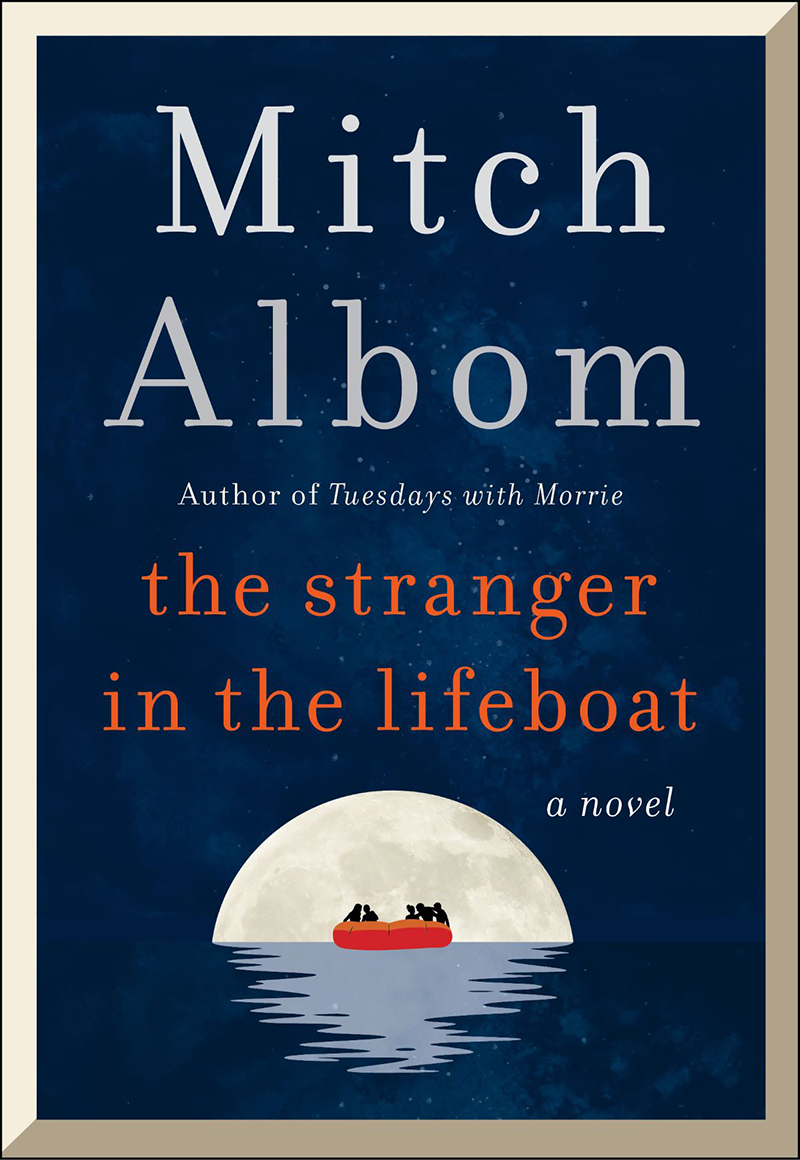
The COVID-19 pandemic changed everything, but it also reinforced this universal truth: Things get real pretty quickly when people are trapped in a confined space for a sustained period.╠²
Yes, when thereŌĆÖs no escape hatch and conflicts arise, those involved must confront each other or do something drastic ŌĆö which results in high drama, the likes of which anchor most reality television and no small number of plays, films, and other works of fiction.╠²
Mitch AlbomŌĆÖs newest novel, The Stranger in the Lifeboat, fits neatly into this tradition, albeit with a heavy spiritual bent.╠²
As the book starts, 10 people find themselves adrift in a lifeboat during a storm, having survived a megayachtŌĆÖs mysterious explosion. Some are workers on the boat, including our narrator, Benji; some are among the famous figures whoŌĆÖve been gathered for a kind of global trailblazer summit; and one is the billionaire who planned the event and owned the yacht, Jason Lambert.
But there are also two passengers pulled aboard whom no one recognizes: a girl who doesnŌĆÖt speak and a strangely uninjured young man whose first words are ŌĆ£I am the Lord.ŌĆØ
We learn about all the lifeboat passengers, as well as what happens to them, by way of a notebook Benji writes in. That notebook also serves as the conduit for the novelŌĆÖs other storyline, in which a Caribbean police inspector is called out, a year after the yacht explosion and the passengersŌĆÖ disappearance, to see what remains of a lifeboat washed up on his shores.╠²
Like the ocean waves that propel the lifeboat hither and yon, Stranger has an undeniable momentum. The novelŌĆÖs claustrophobic, high-stakes setup keeps the pages turning, as does its structure, with short, digestible chapters that shift around in time and perspective.
Still, AlbomŌĆÖs prose is sometimes self-consciously labored. On the very first page, in fact, weŌĆÖre told, with regard to the character of ŌĆ£the Lord,ŌĆØ that ŌĆ£his eyes were pale blue, the color you imagine the ocean to be when you dream of a tropical vacation.ŌĆØ This may, of course, be Albom intentionally painting Benji as an unimaginative and trite writer, but moments like this nonetheless tripped me up every time.
And while BenjiŌĆÖs journaling provides a convenient means of telling the story of those in the lifeboat ŌĆö while also connecting it to the police inspector ŌĆö the notebook is a highly problematic narrative device. Benji addresses his writings, from the start, to his lost love: ŌĆ£I am writing to you in the pages of this notebook, Annabelle, in hopes you might somehow read them after I am gone. I need to tell you something, and I need to tell the world as well.ŌĆØ
While I could maybe, possibly believe that a survivor in this situation would address his writings to his wife, I couldnŌĆÖt get past the manner in which Benji relays his tale: with full conversations of dialogue, featuring multiple voices; with flashbacks and explanations that wouldnŌĆÖt be necessary if his wife were really the intended reader; and with awkward moments like this, when Benji finds a fellow lifeboat passengerŌĆÖs suicide note among his scribbles: ŌĆ£I closed the notebook and dropped my head. I cried so hard my chest hurt, but my eyes stayed dry as dust.ŌĆØ
Would you write in a journal about a moment when you closed the journal? Probably not. And this precisely elucidates the daunting challenge of using this ŌĆ£notebookŌĆØ approach. If youŌĆÖre going to write first-person sections of a novel and say theyŌĆÖre a characterŌĆÖs journal, the sections must feel genuine and true to that context. In Stranger, they donŌĆÖt.
But Albom, the Detroit Free Press sportswriter who has become our cityŌĆÖs most famous and successful living author of both fiction and nonfiction, knows what heŌĆÖs doing. His fans flock to his work for its sadness-tinged-with-hope vibe and spiritual uplift, and theyŌĆÖll be more than satisfied with Stranger. There are twists and surprises as well as, unsurprisingly, a heartwarming conclusion.
For those less smitten by Albom, your reception will depend on your views about religious faith. LetŌĆÖs just say that, if youŌĆÖre moved by this concluding paragraph, youŌĆÖll love the rest of Stranger: ŌĆ£In the end, there is the sea and the land and the news that happens between them. To spread that news, we tell each other stories. Sometimes the stories are about survival. And sometimes those stories, like the presence of the Lord, are hard to believe. Unless believing is what makes them true.ŌĆØ
This story is featured in the December 2021 issue of ŽŃĖ█┴∙║Ž▓╩═╝┐Ōū╩┴Ž magazine. Read more stories in our╠²digital edition.
|
| ╠² |
|








